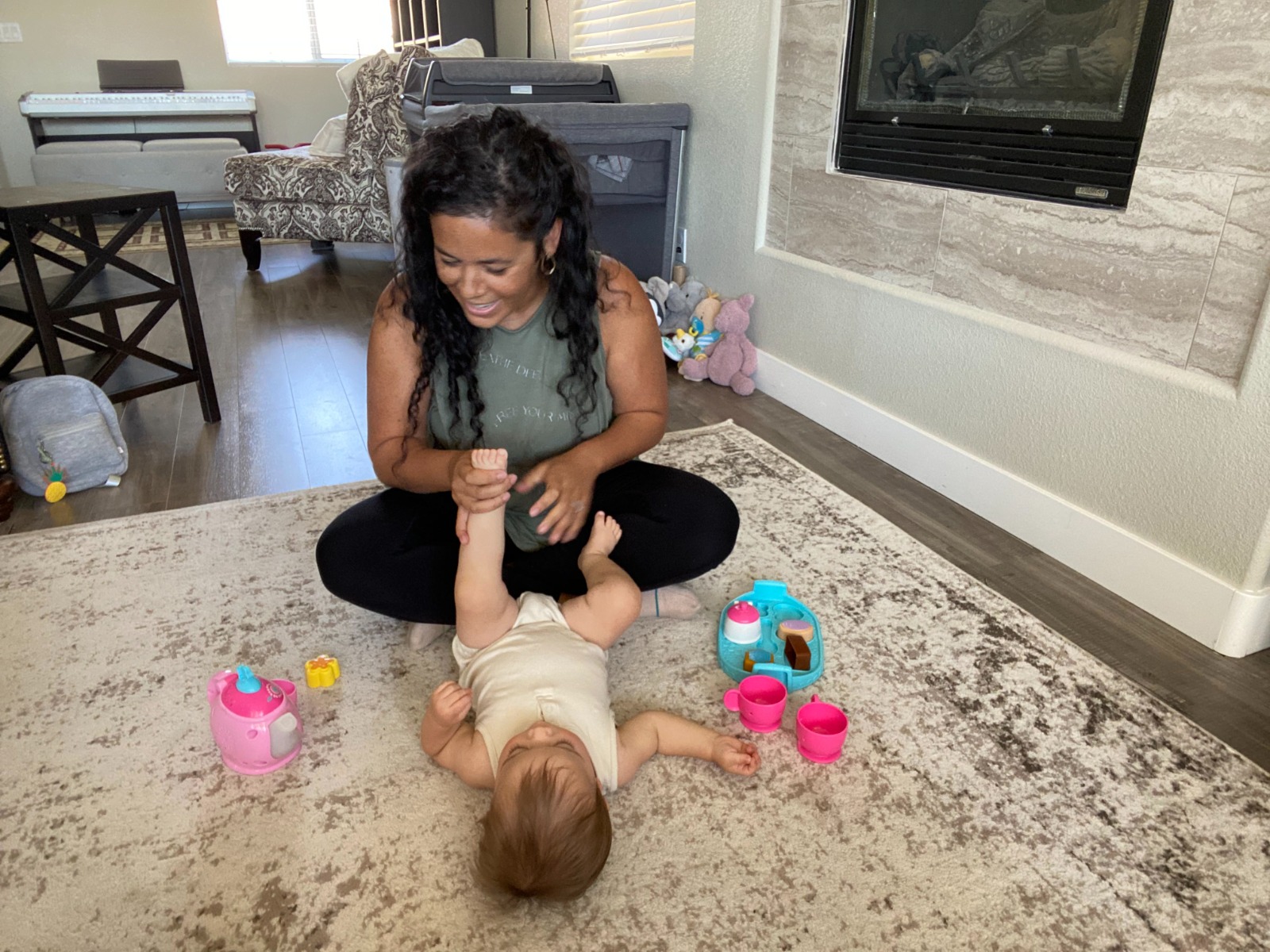Cookies and Privacy
Daytot processes information about your visit using cookies to improve site performance, facilitate social media sharing and offer advertising tailored to your interested.
By continuing to browse our site, you agree to the use of these cookies. For more information see our
Privacy & Cookie Policy.
3 Ways To Foster Early Development In A Small Childcare Setting

For the sake of this article there are a few terms to clarify: “early development” means motor skill development in the infant stages and skills like tummy time, rolling and sitting. “Private Care” is a childcare setting where small groups of children are being taken care of at once or there is a 1:1 ratio (nanny, au pair etc).
If you're a parent and childcare is part of the fabric of your family then here are some tips on fostering early development - even when you aren't able to be there!
A little personal background; both of my boys have been in some level of childcare since infancy. And since I work with parents to foster their babies early motor development, we worked to keep open lines of communication when a family member watched our little ones. Economically, a nanny or au pair wasn’t in our budget but my mom (baby’s maternal grandmother) enjoyed a once a week shift in our home.
There were a few benefits to this including but not limited to; being able to pack the baby up and get ourselves out the door one less morning a week, one less afternoon of fighting traffic to pick up the baby from daycare and a connection between my baby and a close family member. But we did have a few ground rules to ensure development continued to be a priority.
Here are some tips to build and nurture your child’s early development while maintaining the relationship with family or a nanny:
-
For family - be firm but open: for all involved it’s best to leave your ego at the door; this can be challenging if you’re a “cycle breaker” parent. This means you typically have ideas about how to parent your child that may be similar or completely different than previous generations. Easy ways to build the bridge of connection:
-
Be honest and consistent with wording. Phrases like “I appreciate that you raised me and I’m here and thriving. Please appreciate that we are trying (insert strategy here) with the baby for (this reason). Thank you so much!”.
-
Simply say “We’ve been trying these things. It will be so fun to try them with baby yourself!”. These help during the transition at the beginning of the day (clapping, babbling more, how much they’re growing).
-
“It would be so helpful if you could practice (insert skill) with the baby. Here, I have some extra time to show you how. It’s been tricky for us but I’ve seen him do more so it’s fun to watch him get stronger”.
-
-
Overlap if possible: The daily routine can become a grind and exhausting but overlap with your family member or nanny at the beginning or end of the day can be valuable. This helps them connect with you as the parent and it also demonstrates that you’re appreciative of listening to their perspective on the day.
-
Of course, since a nanny is a paid position they may have a schedule to keep but the offer can be there to nurture a good relationship and open communication.
-
-
Bonus: if your child has a therapist (physical, speech or occupational) - be open to having the PT, OT or SLP come for a visit when the family member or nanny are present. Personally this is a game changer for so many of the families I work as a physical therapist!
These are not a “one size fits all” prescription but they will open up a dialogue which is a huge step forward. It's likely that your nanny has excellent experience and yes, your family member is motivated to care for your little one. But the key is working together to provide the quality of care that is specific to your little one, the goals you have as a family and respects boundaries. But every baby is different and how your baby engages in that curriculum is something you will know the best as the parent - and the nanny or your family member are likely looking for that guidance. Because you're the expert on your baby and they are knowledgeable in the skills your baby needs to learn - that's where you meet in the middle! And then your baby gets the benefit of both perspectives.
Blogger Profile
Kelsey is a doctor of physical therapy who works with mama’s and their babies in their homes. She uses a coaching style to empower mama to support her babies motor development without stress or guilt. And focuses on mama’s pelvic health during pregnancy and the postpartum journey - with less leakage and pain. Kelsey is a working mama of two under 5 so she understands the transition back to the office and the exhaustion of pumping, feeding and the desire to still nurture your dreams and ambitions. She looks forward to helping you and your little one explore and stay mobile during whatever adventures you seek! You can connect with Kelsey on Instagram @the.mobility.project
